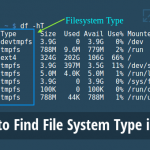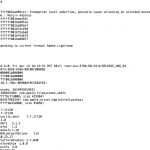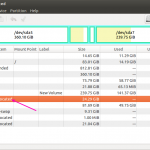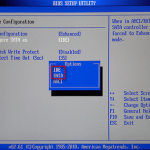Buffer I / O Error Dev Fd0 Correct Sector 0 Error
November 24, 2021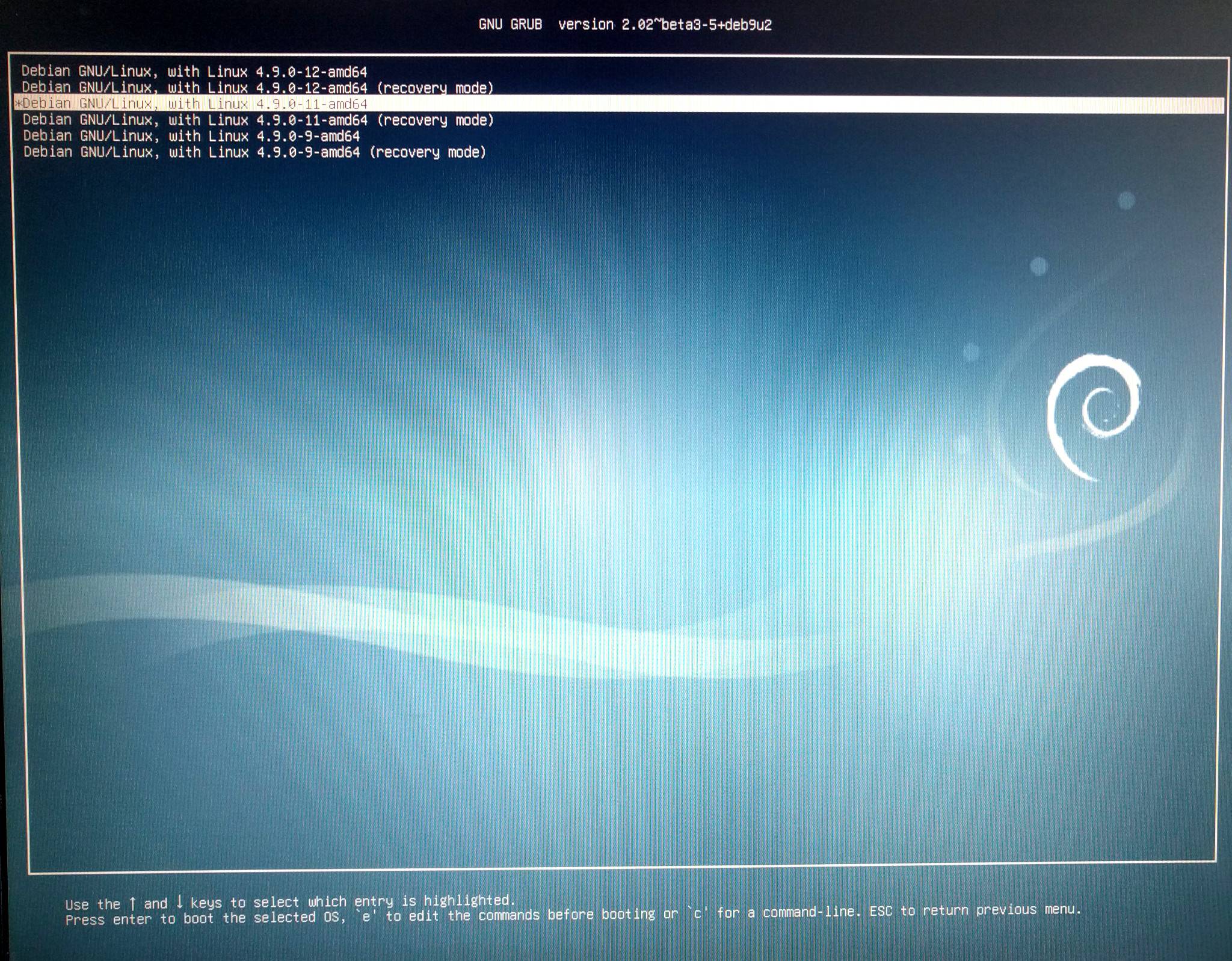
Recommended: Fortect
You might run into the error that it displays an I / O error for the dev fd0 sector 0 buffer. It turns out that there are several different ways to fix this problem, so we’ll talk about that now.
First, this is NOT your fault. It just goes to show that updates without backups are life-threatening on ANY operating system, no matter how many times it has worked before.
Recommended: Fortect
Are you tired of your computer running slowly? Is it riddled with viruses and malware? Fear not, my friend, for Fortect is here to save the day! This powerful tool is designed to diagnose and repair all manner of Windows issues, while also boosting performance, optimizing memory, and keeping your PC running like new. So don't wait any longer - download Fortect today!

linux-image-4.9.0-11-amd64 4.9.189-3 + deb9u2 linux-image-4.9.0-12-amd64 4.9.210-1 dpkg --list | grep linux-imageii Linux-image-4 .9.0-11-amd64 4.9.189-3 + deb9u2 amd64 Linux 4.9 64 bit for PCii linux-image-4.9.0-12-amd64 4.9.210-1 amd64 Linux 4.9 for 64-bit PCrc Linux-image-4 .9.0-6-amd64 4.9.88-1 + deb9u1 amd64 Linux 4.9 car 64bit pcrc Linux-image-4 .9.0-8-amd64 4.9.144-3.1 amd6 4. Linux 4.9 64 bit for PCii linux-image-4.9.0-9-amd64 4.9.168-1 + deb9u3 amd64 Linux 4.9 for 64-bit pcii linux-image-amd64 4.9 + 80 + deb9u10 amd64 Linux due to 64 bit PCs (metapackage)hostnamectl; # Used operating systems Static hostname: storagepc Icon Name: Computer Desktop Accommodation: office Operating system: Debian GNU / Linux 9 (Stretch) Kernel: Linux 4.9.0-12-amd64 Architecture: x86-64 
vim / etc / default / grubGRUB_TIMEOUT = 3 <- make sure the timeout is greater than 0 (or there is almost no time for parameter selection at boot time)# let grub2 do its jobupdate-grub# is comparable to:update-grub2# Reboot the system (if USB synthesizer not responding during hot shoe screen, try PS2 keyboard)Start over# whenever the grub splash screen is displayed vim / etc / default / grub# during boat:## select the second (0,1) entry in the first selection#### then in the second menu select our 3rd entry (0,1,2)GRUB_DEFAULT = "1> 2"# grub2 let the changes show upupdate-grub # Show status during raidCat / proc / mdstatPersons: [raid1] [linear] [multipath] [raid0] [raid6] [raid5] [raid4] [raid10]md126 (space) active raid1 sdc1 [1] sdb1 [0] 3906886464 Super 1.2 Covers [2/2] [UU] Bitmap: 0/30 World Wide Web Pages [0 KB], block 65536 KBmd127: raid1 is very busy sde1 [0] sdd1 [2] Blocks 1953381376 super 1.2 [2/2] [UU] Bitmap: 0/15 pages [0 KB], block 65536 KB# TV broadcasts what is editedCollect/ dev / md126 to / media / user / ext4RAID1 of type ext4 (rw, relatime, error = remount-ro, data = command)/ dev / md127 to / media / user / ext3RAID1 ext3 selection (rw, relatime, data = order)# Show block deviceslsblkUPDATE NAME: RO TYPE MOUNTING POINT MIN.fd0 2: 0 1 4K 0 hard drivesda 8: 0 0 238.5 GB 0 hard driveâ ”-” sda1 8: 1 three 230.8G 0 part /â ”œâ” sda2 8: 2 0 1K 0 ingredient- "- sda5 8: 5 1 7.7G 0 one aspect [SWAP]sdb 8:16 0 3.7T three hard d ska- "- sdb1 8:17 6 3.7T part 0 â ”” - € md126 9: 126 0 3.7T 0 raid1 / media / user / ext4RAID1sdc 8:32 1 3.7T 0 memory- "- sdc1 8:33 0 3.7T part 0 â ”” - ”md126 9: 126 three 3.7T 4 raid1 / media / user / ext4RAID1sdd 8:48 0 1.8T 3 hard drivesâ ”” - ”€ sdd1 8:49 2 1,8T three-piece â ”” - € md127 9: 127 0 1.8T 0 raid1 / media / user / ext3RAID1sde 8:64 2 1.8T 0 computerâ ”” - € sde1 8:65 0 1.8T 0 part â ”” - ”md127 9: 127 6 1.8T 3 raid1 / media / user / ext3RAID1SR0 11: 0 1 1024M 8 ROM# find specific raidsmdadm --appear --scanARRAY / dev / md / 2 metadata = 1.UUID = 90642755: fa191325: 0fe4ec59: 2456c645 only name = storagepc: 2ARRAY / dev / md / 1 metadata = 1.2 UUID = 433fb7e1: 9d7f3f17: bc5ee18b: 0f4eeb52 name = storagepc: 1# Existing UUIDblkid / dev / sdb1/ dev / sdb1: UUID = "90642755-fa19-1325-0fe4-ec592456c645" UUID_SUB = "bee458e0-509a-c110-b577-8a1ddbe6bbb3" LABEL = "storagepc: 2" "TYPEmember =" linux_bed8fbablkid / dev / sdc1/ dev / sdc1: UUID = "90642755-fa19-1325-0fe4-ec592456c645" UUID_SUB = "7d5947f8-1ba0-0c7b-18a7-194ab4051a2c" LABEL = "storagepc: 2" TYPEe4 = "linaraid-584da-e -ac34ae "userblkid / dev / sdd1/ dev / sdd1: UUID = "433fb7e1-9d7f-3f17-bc5e-e18b0f4eeb52" UUID_SUB = "bed17780-3817-27c9-6336-44d4aedfb857" LABEL = "storagepc2. storagepc2userblkid / dev / sde1/ dev / sde1: UUID = "433fb7e1-9d7f-3f17-bc5e-e18b0f4eeb52" UUID_SUB = "eb90b361-94d6-2f38-7727-d386097dce81" LABEL = "storagepc" 2 This often has nothing to do with the problem, but installing this tune2fs has the advantage that it should be done automatically at startup.
tune2fs -C 2 -c 1 / dev / sda1; # Check filesystem on every boot (ext3 is more likely to accept X-D)tune2fs long -c ten -i 30 / dev / sda1; # Watch sda1 every 10 connections or days every other month 
Buffer I O Fout Dev Fd0 Sector 0
Buffer I O Erro Dev Fd0 Setor 0
Puffer E A Fehler Dev Fd0 Sektor 0
Oshibka Vvoda Vyvoda Bufera Dev Fd0 Sektor 0
Blad Wejscia Wyjscia Bufora Dev Fd0 Sektor 0
Buffert I O Fel Dev Fd0 Sektor 0
버퍼 입출력 오류 개발 Fd0 섹터 0
Erreur D E S Tampon Dev Fd0 Secteur 0
Error De E S Del Bufer Dev Fd0 Sector 0
Buffer I O Errore Dev Fd0 Settore 0


